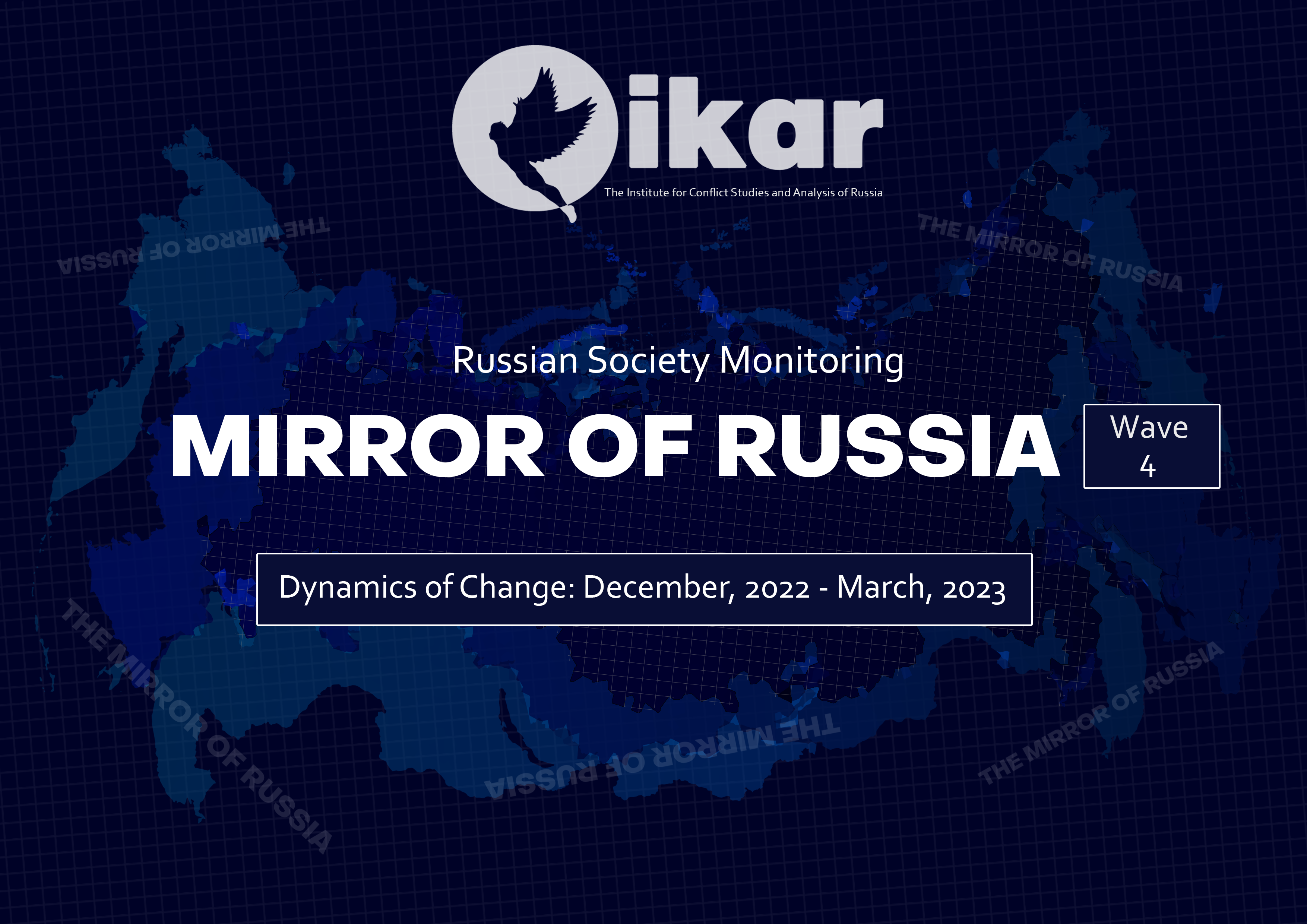
"Mirror of Russia" - The Four Wave (March 2023)
28/03/2023, 06:16
The Russians are increasingly feeling the effects of economic problems, and start to assess losses as critical
From March 6 to 19, 2023 the Institute for Conflict Studies and Analysis of Russia (IKAR) conducted another monthly sociological survey of Russian society called "Mirror of Russia". This fourth wave of the survey was conducted on an all-Russian sample, using CATI method (Computer Assisted Telephone Interview), a telephone survey based on an interactive structured questionnaire using special software for sociological surveys. A total of 1,600 respondents were interviewed.
The main results of the fourth wave of the survey:
1. Among Russians, the share of those who consider low wages and pensions to be the most urgent problem is steadily growing from 25% in December 2022 to 35% in March 2023. "Special military operation" is still on the top among major problems of Russians, however, a tendency towards equalizing its importance with their financial problems is observed. In addition, 60% of respondents said their ability to buy goods and services over the past year has decreased.
2. Compared to previous months, the number of Russians who consider it necessary to endure any hardships and under no circumstances go out to protest has doubled - from 21% in February to 45% in March. Among Russians who consider possible protesting (53%), the majority do not see any existing leaders to follow, or are unwilling to participate personally.
3. Over the past month, the share of respondents who have close friends or relatives killed in the war has notably increased from 38% in February to 44% in March. The percentage of respondents who have close friends or acquaintances mobilized since February 2022 has remained unchanged over the past month, and is still at 68% rate. Every fourth Russian (24%) has close friends or acquaintances who left the Russian Federation due to mobilization.
4. With the large number of Russians who have close friends or relatives killed in the war,majority of respondents (56%) are confident that Russia's current losses in the war are already at the maximum acceptable level. The desire for the war to be stopped also coincides with a noticeable increase in the proportion of citizens who would like everything to be over within six months - from 35% in February to 44% in March.
5. Only a small percentage of Russians (14-17%) will not accept a war or military actions against the Baltic countries or Poland, nor they will accept a land corridor from Belarus to Kaliningrad Oblast, under any circumstances. However, most respondents would allow this under certain conditions.
6. More than half of Russians (55%) do not feel a threat from NATO countries and 43% do. Respondents mainly replied that they perceive a threat either from the entire North Atlantic Alliance or specifically from the United States.
7. An absolute majority of Russians (88%) do not support the use of nuclear weapons against Ukraine. Most citizens of the Russian Federation (65%) do not support nuclear strikes against NATO countries either. At the same time, every fourth respondent would support such a step.
